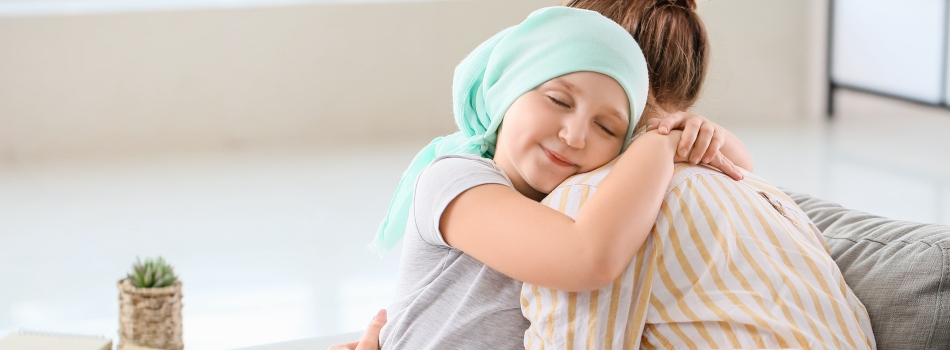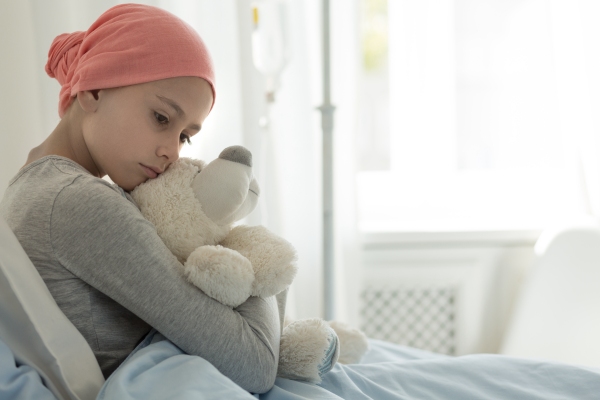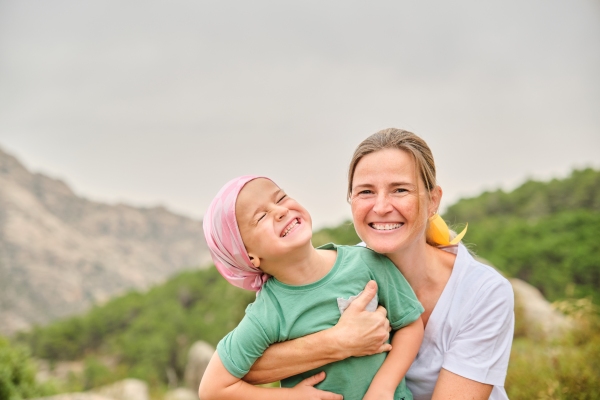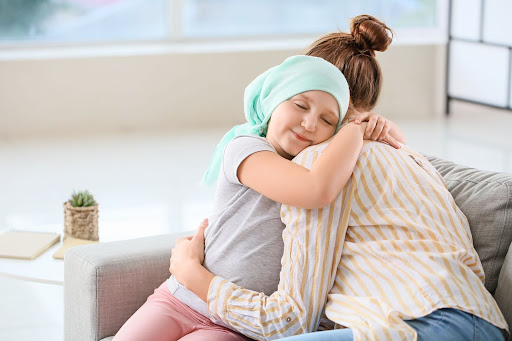
Highlights
- Therapists play a critical role in children’s cancer awareness and early detection through observation and rapport with children and families.
- By observing physical or emotional changes in children, therapists can identify potential cancer symptoms and get children and their families the early help they need.
- Therapists can use patient communication tools to educate children and parents about the warning signs of childhood cancer to encourage early interventions.
- Staying up-to-date on cancer detection and treatment advancements and using patient-centered technology can help therapists provide the best possible outcomes for clients.
Childhood cancer rates are a distressing reality, with over 15,780 children between birth and 19 receiving a diagnosis each year. Some cancer diagnoses, such as leukemia, have seen a 35% increase in the past 40 years. As communities unite to battle this formidable foe, therapists play a critical role in raising children’s cancer awareness and helping kids and their families receive early intervention.
In the fight against childhood cancer, therapists serve as vigilant gatekeepers, using their powers of observation and establishing a strong rapport with children and families to spot potential signs and facilitate early detection.
Therapists have a major impact on awareness and promoting timely intervention for childhood cancer, improving the chances of successful treatment and recovery for young patients.
The Role of a Therapist in Addressing Children’s Cancer Awareness
Childhood cancer rates continue to be a leading cause of death for children under 19, making early detection and intervention crucial in saving young lives. A therapist’s role in early detection of childhood cancers involves building trust and rapport with young clients and their families to help identify and promote awareness of childhood cancer symptoms and help them receive appropriate, timely medical attention.
- Building trust and rapport. Therapists forge a strong bond with children, creating a safe and comfortable environment where youngsters feel at ease sharing their thoughts and emotions. This close observation and rapport allow therapists to notice physical or emotional changes that indicate an underlying health concern.
- Getting thorough background and family history. Understanding a child’s background and family history is essential for identifying potential risk factors associated with childhood cancers. Therapists collaborate with parents and caregivers to gather relevant information for a personalized approach to treatment.
- Being attuned to subtle behavioral changes: Children may express distress through subtle behavioral changes, such as sudden regressions, acting out, or withdrawal. Therapists can stay alert to these warning signs of childhood cancer and make timely referrals for early testing and diagnosis.
- Referring families to pediatricians. When therapists observe potential symptoms or concerns, they take decisive action by referring families to pediatricians or pediatric oncology providers for further evaluation. This proactive approach aids in early diagnosis and treatment.
- Supporting children and families coping with a diagnosis. Therapists provide invaluable emotional support to young cancer patients. Counseling sessions help them navigate the psychological impact of cancer, address body image issues, and manage the uncertainties that lie ahead.
- This can also extend to patients’ families, as mental health outcomes in parents of children with cancer show that they experience a higher rate of mental health disorders than parents of children without a diagnosis. Therapists also help families cope with loss.
- Support groups for childhood cancer. Therapists may facilitate or refer families to support groups for those affected by cancer, creating a network of understanding and empathy. These groups offer a sense of community and a safe space to share experiences, fostering resilience and hope and offering much-needed family support.

The Psychological Impact of Childhood Cancer
Childhood cancer not only affects the physical health of young patients but can pose psychological challenges, as well. Understanding and addressing the emotional toll on children and teenagers is a primary goal of therapists in addressing childhood cancer.
The following are common psychological issues facing young cancer patients and how therapists can help them accept and cope:
- Negative effects and body image issues. The journey through cancer treatment can be emotionally grueling for children and teens. Many may experience cancer-related post-traumatic stress (PTSD), anxiety, depression, behavior issues, and regression as they navigate the uncertainties and hardships of the illness. In adolescents treated during their developmental years, body image issues are common due to treatment-related changes.
- Therapists must empathize with these challenges, helping patients cope with the emotional burden and fostering self-acceptance. Therapists use evidence-based counseling techniques, such as cognitive-behavioral therapy (CBT), to address negative thought patterns, manage anxiety, and promote healthy coping mechanisms, enhancing the emotional resilience of young patients.
- Social isolation and disruption of schooling. Childhood cancer can lead to social isolation and disruption of schooling, impacting self-esteem and emotional well-being. Adolescents may feel left out of their peer groups or struggle to maintain their studies during treatment.
- Therapists can provide emotional and social support for young patients by helping them stay connected with their friends and school communities. Through group therapy sessions and family involvement, therapists encourage open communication and provide a supportive network, reducing feelings of isolation and fostering a sense of belonging.
- Coping with loss and grief. A cancer diagnosis often entails the loss of independence and a sense of normalcy and the potential disruption of future dreams. Teens may grieve over the loss of their prior health and the aspirations they had for their lives.
- Therapists can be a trusted outlet for adolescents to share their feelings and process their grief constructively. Therapists can employ grief counseling techniques to help young patients process their emotions, explore meaning and acceptance, and find ways to honor their past while adapting to the present.
- Facilitating open communication. Older kids facing cancer need a safe space to discuss their feelings, concerns, and hopes for the future. Therapists provide this critical outlet, openly communicating about goals, dating, fertility, and other sensitive topics.
- By fostering honest dialogue through traditional in-person or technology-based interventions like virtual therapy, therapists help all kids find emotional support and understanding. Therapists can use active listening and empathy to create a non-judgmental space where pediatric patients can openly discuss their feelings and receive guidance and reassurance.
- Early detection of emerging mental illness. Cancer treatment can exacerbate pre-existing mental health conditions or trigger new ones. Therapists should identify and address these emerging issues early on, collaborating with other healthcare providers to ensure holistic care for their young patients.
- They can conduct comprehensive assessments and collaborate with pediatric oncologists and mental health specialists to provide timely interventions and appropriate treatment plans for emerging mental health issues.
- Teaching coping strategies. The medical procedures, pain, and side effects associated with cancer treatment can be distressing for young patients. Therapists can teach coping strategies to help kids manage their emotions and navigate the challenges they encounter during treatment.
- This can include relaxation techniques, mindfulness-based interventions, and guided imagery to help patients cope with treatment-related stressors and improve overall well-being.
Promoting Awareness and Early Detection
As a therapist, you are integral to the support of children and families facing childhood cancer. To further build a supportive environment, you can focus on promoting awareness and early detection in your practice and community to join in the fight against childhood cancer with the following actions:
- Educating other therapists. Therapists can be powerful advocates for early detection by sharing their expertise with colleagues. Conducting workshops and training sessions to educate other therapists on the warning signs of childhood cancers equips the entire mental health community with the knowledge needed to identify potential red flags.
- Displaying informational materials. Creating a well-informed environment in your therapy office and through social media can effectively raise awareness among clients and families. Prominently displaying informational materials on childhood cancers can help foster awareness and encourage open discussions about health concerns.
- Participating in community efforts for children’s health. Therapists can extend their impact beyond their practice by actively participating in community initiatives focused on children’s health. Collaborating with schools, community centers, and local organizations allows therapists to reach a broader audience and promote awareness of childhood cancer and the importance of early detection.
- Referring families to support organizations. Awareness also involves connecting families to valuable resources. Therapists can refer families to support organizations like the American Childhood Cancer Organization, which provide comprehensive assistance, emotional support, and educational materials for those affected by childhood cancer.
- Staying up to date on progress. With ongoing research and advancements in detecting and treating childhood cancers, it’s critical that therapists stay informed. By keeping up to date with the latest developments in pediatric oncology, you can provide accurate and current information to your clients, fostering a sense of trust and reliability.
- Using patient-forward technologies. Using patient-forward technologies, such as a pediatric therapy practice management platform, can allow you to efficiently manage vital information such as treatment plans, case histories, and progress notes in a centralized and secure system.

Support Children’s Cancer Awareness at Your Practice
You play a pivotal role in addressing childhood cancer by providing emotional support, identifying warning signs, and fostering resilience in young patients and their families. To enhance the support you offer to your young patients, you need a patient-forward EMR system with features designed specifically for pediatric therapy.
Whatever your specialty, ClinicSource allows you to streamline administrative tasks so you have more time to focus on effective interventions and providing emotional support to your patients.
To join in the fight against childhood cancer and contribute to better outcomes for young patients, move your therapy practice to a supportive EMR with specialized assessments for pediatric clients and convenient scheduling. Schedule a demo for ClinicSource and support your efforts in the battle against childhood cancer.

Let Us Show You











